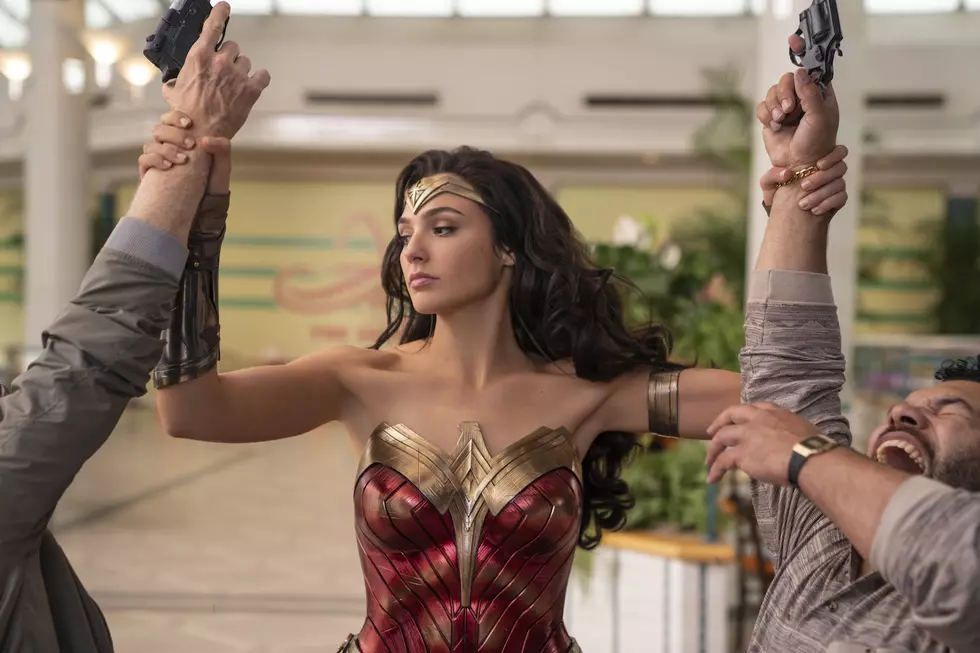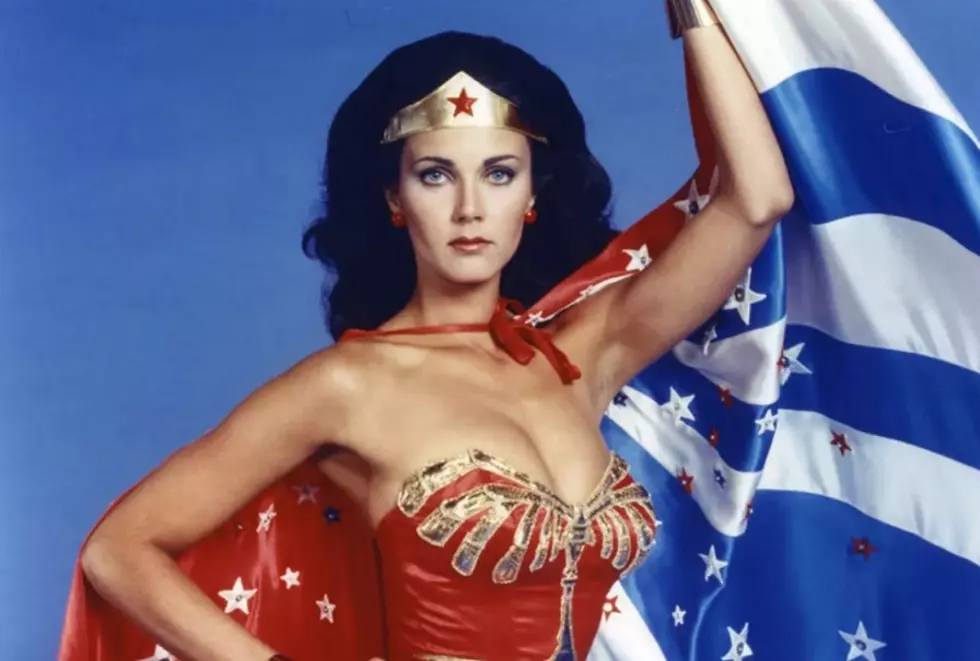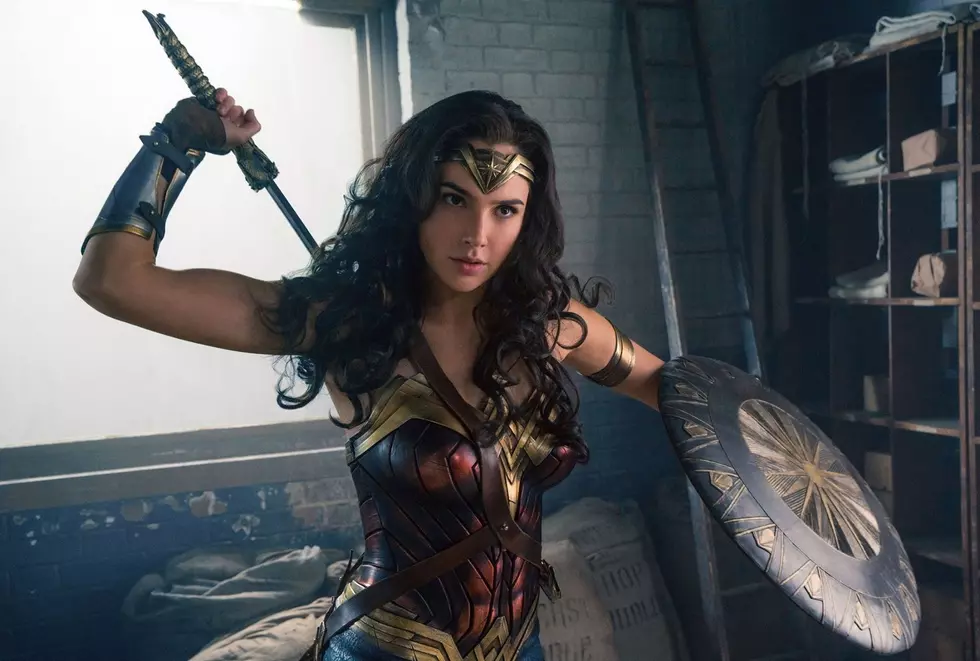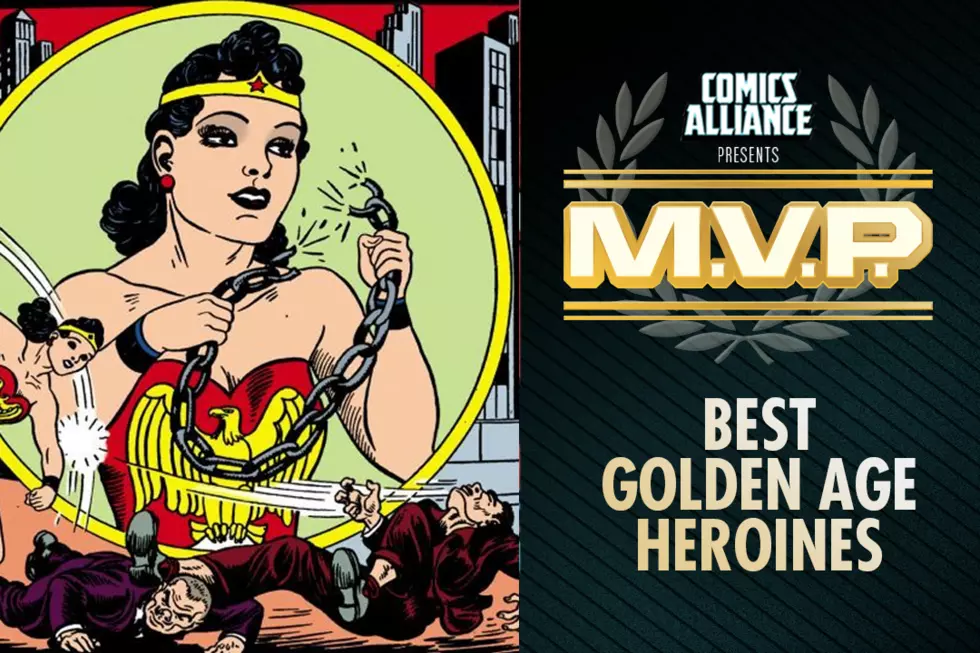![J. Michael Straczynski on Wonder Woman Coming to America and Covering Up [Interview]](http://townsquare.media/site/622/files/2010/06/newwwcostume-1277920074.jpg?w=980&q=75)
J. Michael Straczynski on Wonder Woman Coming to America and Covering Up [Interview]
 The big announcement that Wonder Woman's costume -- and origin -- will be changing in today's "Wonder Woman" #600 has spread far and wide since the news broke yesterday night, with fan reactions to the revamp of a major DC character ranging all over the board.
The big announcement that Wonder Woman's costume -- and origin -- will be changing in today's "Wonder Woman" #600 has spread far and wide since the news broke yesterday night, with fan reactions to the revamp of a major DC character ranging all over the board.
J. Michael Straczynski spoke with ComicsAlliance about the significance of Diana showing less skin, and how bringing the Amazonian princess to America and making her an orphan will change her as a hero.
ComicsAlliance: There's going to be some tweaking of history in this reinvention of Diana; what aspects of her old origin did you feel were incompatible with the updated version of the character?
J. Michael Straczynski: I'm not sure that incompatible is the right word, and in truth, all of the really iconic elements are still there in her history: she's Princess Diana, her mother was Hippolyta, she was sent (albeit much younger) into the outside world, she's a protector of her people...we've mainly moved the setting and the context. But she is still that person.
CA: The change in her history will include the death of her mother, making Diana an orphan, much like Superman and Batman. How will that change her, as a hero? Is that a shared theme you plan to explore, particularly within the context of the trinity?
JMS: One thing that sets her apart from the others is that she was raised by the surviving Amazon guards and handmaids who went with her, so she had roots with her the whole time. She still has her roots in that world. Superman wasn't sent out with Kryptonian staff, though Bruce was raised in the home of his family. What it does for her, though, is to move much of what she knows about Paradise Island and her mother out of personal experience and into what she's been told. That's a very different mindset.
The contrast is really what's fun about that... a modern, urban city but beneath the surface are these escaped Amazons, raising and protecting the one who they believe will bring back their people, training her in the old ways...but walk outside, and she's right back in the urban world. She has a foot in both worlds.CA: The biggest change of the costume is obviously the addition of pants, a shift that brings her slightly closer to male heroes like Batman and Superman in terms of how much skin she exposes while crimefighting. Given how costumes that look like swimsuits are more the norm for superheroines -- and how much of Wonder Woman's identity is bound up in her costume -- what sort of message does this send about the new Wonder Woman? How do you think this costume will change the way she is perceived by both male and female readers?
JMS: We've been able to get some initial reactions as advance word has leaked out, and it's an interesting mix. A lot of folks who haven't read Wonder Woman say they'll do so in large measure now because of the change, they like the dynamic of it...and some current readers say they won't for the same reason. There's no way to know who's really serious about what, of course, until the numbers come in.
I really wanted to get away from the overt sexuality of her outfit to something more street-worthy, which also reflected her dilemma... a woman of two worlds, the urban side and the mythic side. So the outfit has a very urban silhouette, while retaining the iconic elements of the original.
CA: Do you think that more female superheroes should have costumes that focus on functionality and style rather than designs that highlight sexuality?
JMS: It's not a case of either/or. What I found fascinating recently was a Wonder Woman reader, a woman, who pointed out that the difference between male and female superheroes is that male heroes are idealized in their appearance (muscles, skin-tight, but not being overtly sexual or posed in sexual ways), and women heroes are objectified (the posing and what's shown is more overt). I thought this was absolutely fascinating, and dead on. So what we've really done here, I think, is move her from objectification to a more idealized appearance. But she remains strong, and attractive, and, I think, that makes her even more sexy, in a tough-minded way.

CA: Back around the time of her inception by William Moulton Marston, there were some very strong sexual undertones running through the Wonder Woman comic. You've talked about wanting to make Wonder Woman seem less like a grandma and more like a modern woman who can flirt and have fun; do you have any interest in revisiting those sexual themes in your run?
JMS: She's not going to have time. Trust me. Pretty much every issue at this stage is written at a dead run.
CA: Jodi Picoult had talked about wanting to make the Wonder Woman costume more utilitarian during her run, and how that wasn't an option at the time. What has changed since then that made this new costume possible?
JMS: This all goes to Jim Lee and Dan DiDio, who have repeatedly shown themselves willing to take chances in ways that I think would not have been possible at DC in previous years. They were given the freedom to do these things, but it takes guts to actually follow through. So if this works, it's to their credit; if it fails, it's because I screwed up.
 CA: What do you consider the definitive Wonder Woman story or arc up until now? Who previously defined the character for you, and how will your run draw from that or depart from it?
CA: What do you consider the definitive Wonder Woman story or arc up until now? Who previously defined the character for you, and how will your run draw from that or depart from it?
JMS: Well, the Perez run is always going to be at the top of the pile. As for corollaries to what we're doing, there really aren't any, so we're going to have to make our own mistakes rather than being able to rely on the mistakes of others or be able to steal previous ideas that worked well... so we're really on our own.
CA: Is there any connection between the time travel that causes Wonder Woman's new status quo and the upcoming Flashpoint event?
JMS: Not as such, no, though there is something that happens in the Geoff Johns story that immediately precedes mine that points to both that story and what I'm doing.
CA: You're going to have simultaneous runs on both Wonder Woman and Superman -- will there be any overlap in the two stories, or will they remain separate for the most part?
JMS: For the most part, they'll be separate. I do want them to run into one another at one point, however. She'll also be encountering other heroes, some of whom are able to perceive the shift in the timeline (such as the Phantom Stranger and Deadman).
More From ComicsAlliance









